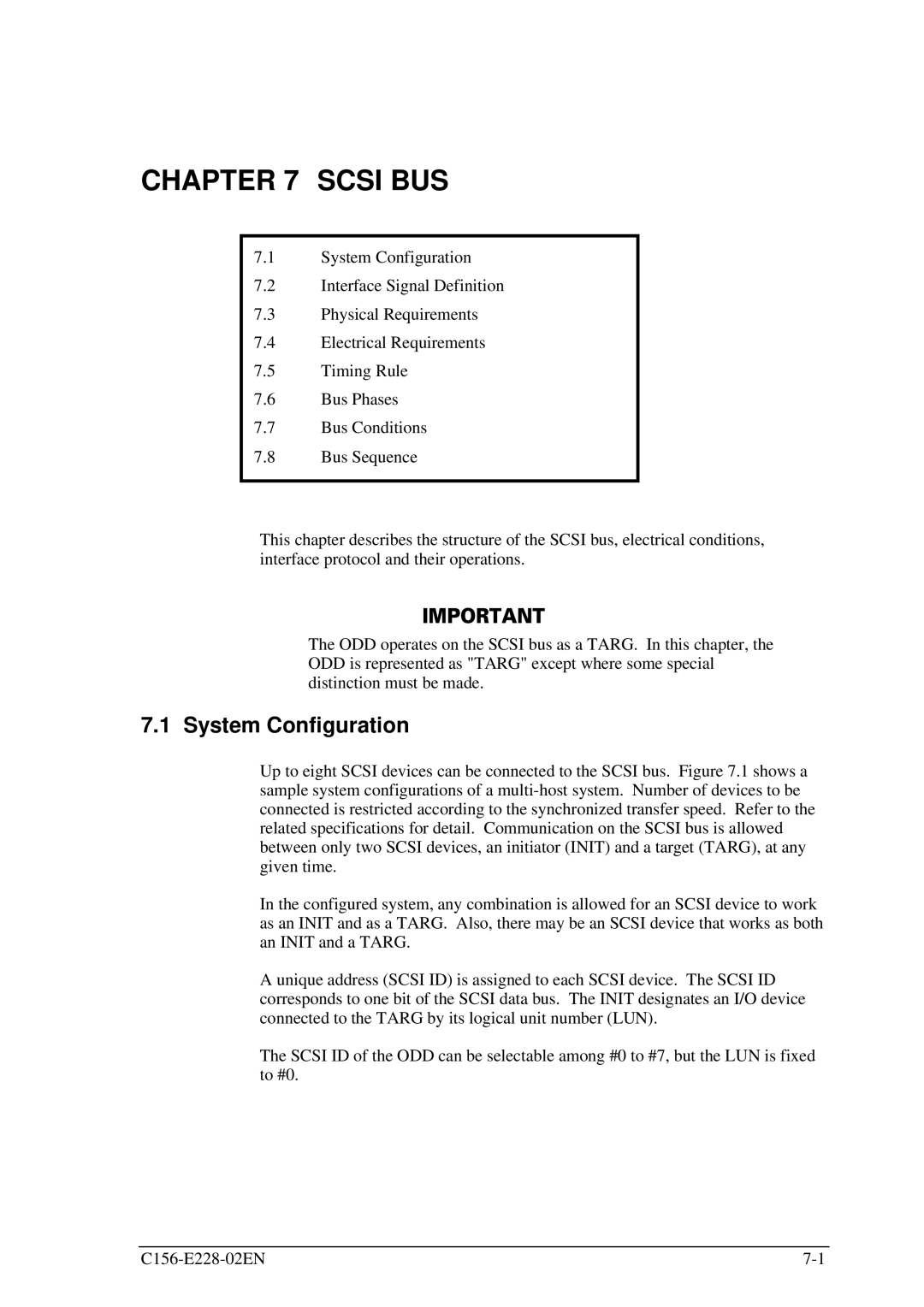
CHAPTER 7 SCSI BUS
7.1System Configuration
7.2Interface Signal Definition
7.3Physical Requirements
7.4Electrical Requirements
7.5Timing Rule
7.6Bus Phases
7.7Bus Conditions
7.8Bus Sequence
This chapter describes the structure of the SCSI bus, electrical conditions, interface protocol and their operations.
The ODD operates on the SCSI bus as a TARG. In this chapter, the ODD is represented as "TARG" except where some special distinction must be made.
7.1 System Configuration
Up to eight SCSI devices can be connected to the SCSI bus. Figure 7.1 shows a sample system configurations of a
In the configured system, any combination is allowed for an SCSI device to work as an INIT and as a TARG. Also, there may be an SCSI device that works as both an INIT and a TARG.
A unique address (SCSI ID) is assigned to each SCSI device. The SCSI ID corresponds to one bit of the SCSI data bus. The INIT designates an I/O device connected to the TARG by its logical unit number (LUN).
The SCSI ID of the ODD can be selectable among #0 to #7, but the LUN is fixed to #0.
